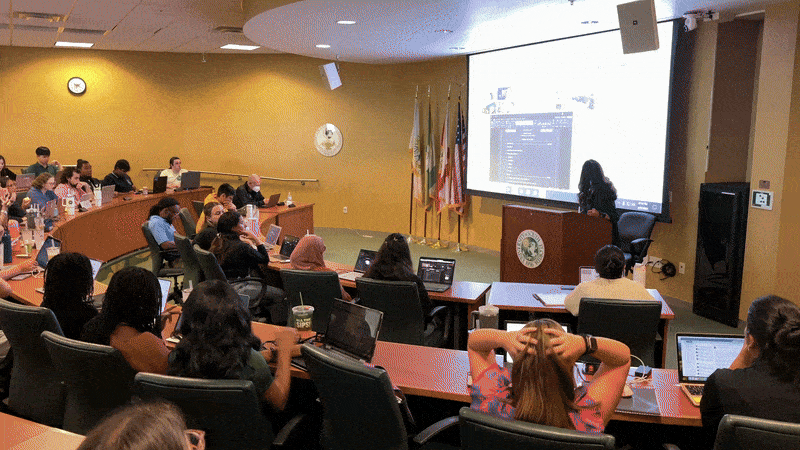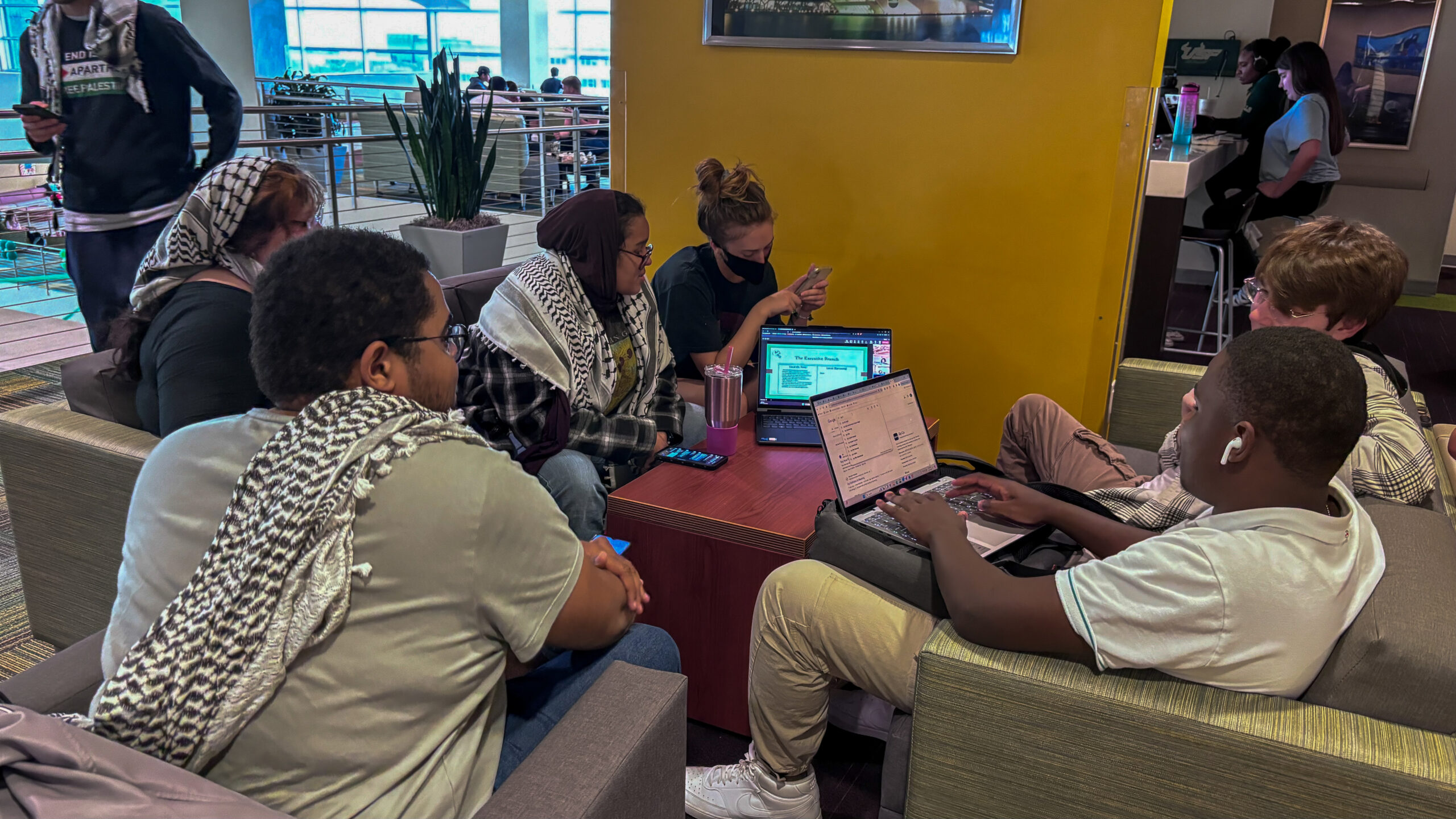USF student leaders narrowly pass divestment measure

In a narrow decision, the Student Government (SG) Senate passed the “USF Investment and Divestment Visibility” Tuesday evening to encourage USF to divest from certain companies and publish its investment portfolio.
Senate President Fariah Ansari was the tie-breaking vote to bring the final count to 16 votes in favor and 15 against.
During the meeting, the senators amended the resolution to remove certain words, such as “since Israel began its current assault,” and to strike a line mentioning Rhea Law’s approach to supporting student’s mental health.
They also voted to change the name of the resolution from “Divest from Israel Resolution.”
Related: USF students to go on hunger strike for Palestine: ‘Putting our lives on the line’
In the resolution, author Alina Atiq, a former hunger striker, asked SG to urge USF’s administration to make its investment portfolio public and divest from several companies “complicit in the ongoing assault on Palestine.”
Atiq, along with 17 other students, went through a 17-day hunger strike to urge the university to divest and publish its investment portfolio in March. However, they have been advised to end the hunger strike and are now called the USF Divestment Coalition, according to its Instagram.
A line close to 160 students filled the hallway outside the chamber at the Marshall Student Center (MSC) ahead of the meeting.
SG President Cesar Esmeraldi, who arrived after the senators had sat down, was told he would have to get in line before being let into the room, to which he replied: “For the student body president?”
Prior to the Senate vote, Esmeraldi posted a three-minute video on Tuesday morning urging senators to vote against the resolution.
“The resolution is clearly one-sided and does not reflect the apolitical stance of USF,” he said in the video. “We’re here for all students from all backgrounds and not to pick sides on wars.”
Related: USF student body president urges senators to vote against divestment resolution
When the meeting started, Ansari encouraged senators to not be swayed by the statement made by Esmeraldi.
“I’ve been made aware of statements by the student body president,” she said. “The statement was extremely one-sided and biased and made without the consent of the Senate or the governments on the other campuses.”
Around 50 students wearing USF Hillel shirts, kippahs or “stop anti-semitism” shirts filed into the Senate Chamber first. Then, around 15 students wearing keffiyehs filled the back in the remaining standing room.
The room reached capacity at 120 people by 6:15 p.m. when the meeting officially started.
Two University Police officers stood by the front entrance to the chamber while around 50 students sat in the hall after the room reached capacity.

Students joined the Microsoft Teams meeting on their computers and smartphones, sitting on chairs just outside the chamber. Around six additional officers stood outside.
During the initial presentation, Atiq, the resolution author, said divestment is not a political or social argument, but a financial one.
“I would argue the decision to divest isn’t backed based on financial prospects since negative publicity due to complicity in the ongoing conflict can affect the company’s profitability,” she said.
Specifically, Atiq and her sponsors listed Hewlett Packard (HP), Boeing, Lockheed Martin, Northrop Grumman and Caterpillar as companies “profiting from an ongoing assault.”
Four hours prior to the meeting, USF Hillel and Chabad at USF issued a statement on Instagram, saying the resolution “contains language and content that perpetuates harmful and discriminatory rhetoric against Israel and the Jewish people.”
During a roughly two-hour question and answer period, in-person and online audience members asked questions about how the resolution would impact Palestinian and Jewish minorities on campus.
Opposition to the bill, including students from USF Hillel, Alpha Epsilon Pi fraternity and Chabad, argued that divestment from companies would mean USF is taking a political stance.
Max Bray, Alpha Epsilon Pi vice president, said supply chain majors rely on USF’s relationships with Boeing and other organizations to get internships and access to jobs after college.
An opposer to the bill asked if the authors would be willing to meet outside of the Senate meeting to create a joint resolution. However, author and former hunger striker Will Mleckzo said Jewish organizations already declined to meet ahead of Tuesday’s Senate meeting.
The authors restated there is a financial risk to USF because the ongoing conflict in the West Bank could result in the decline of the stocks of these companies.
During discussion time, Alexa Matos, SG programming committee chair, said she was initially going to vote in favor of the resolution. However, after hearing the authors of the bill were not familiar with the opportunity to create a survey to gauge the opinion of the entire student body, she urged them to do so.
St. Pete Senator Alexis Hobbs, programming committee vice chair, added herself as a sponsor to the resolution before the vote.
Related: A women-only USF recreation space is too controversial, leaders say
Christian Chow Quan, senate relations committee vice chair, urged the authors to write a petition and to get signatures from at least 2.5% of the student body to show concern from a greater portion of the student population.
Policy committee chair Kaitlyn Rodriguez’s motion to table the resolution indefinitely failed.
Prior to the announcement of the vote, just 15 minutes before the MSC closed, Ansari told attendees to not harass senators leaving the meeting, saying the senators’ safety is her first concern.
“I appreciate everyone who showed up for coming and voicing their opinions,” Ansari said. “I am really grateful that we were able to hear everyone out.”
The meeting was officially over at 10:51 p.m., leaving senators, authors, opposers and audience members to close the building with MSC staff.







